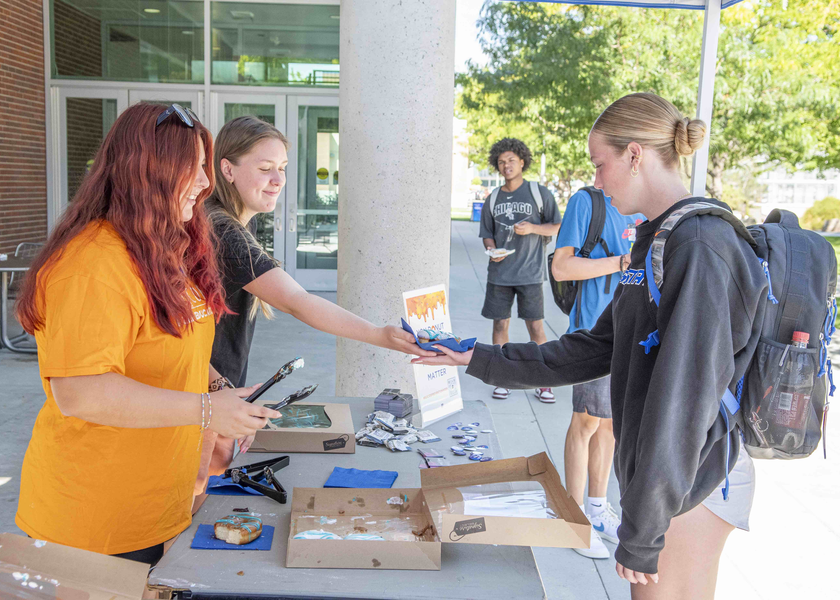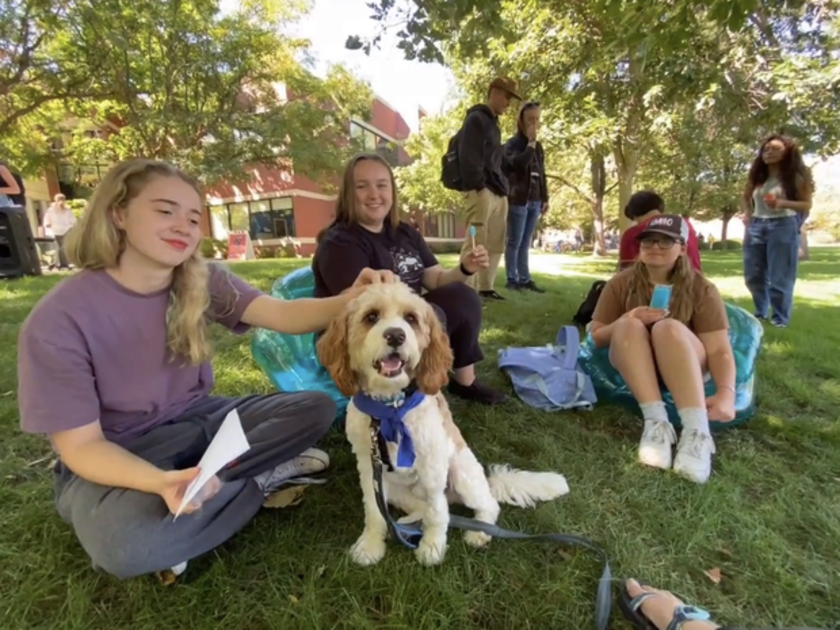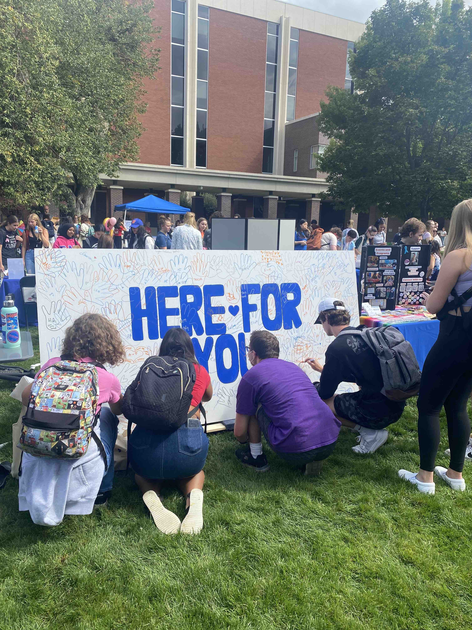News & Announcements
Boise State and St. Luke's: Powerful partners working to address mental health challenges

One BroncoFit event was "Donut Know How Much You Matter," where Boise State students got free donuts while also learning about mental health resources.
By Alexis BennettLast Updated January 23, 2024
Mental and behavioral health issues loom as one of the most pressing public health challenges in our communities.
The joint CHNAs from the Idaho Oregon Community Health Atlas identified mental health and well-being and substance misuse as top priorities.
According to the 2023 State of Mental Health in America report, Idaho ranks 47 out of 51 for prevalence of mental illness compared to access to care. The National Alliance on Mental Illness (NAMI) reports that 52.5% of Idahoans ages 12 to 17 with depression did not receive any care in the last year.
To help address those issues, a partnership between Boise State Health Services and St. Luke’s is having a profound impact on the mental well-being of Boise State students - while making asking for support and self-care mainstream in the process.
Friends supporting friends
The wellness team at Boise State University is seeing similar trends among their student population.

In September, Boise State students got to hang out with therapy dogs and have a popsicle.
"The ACHA-National College Health Assessment results were concerning,” said McKenzie Sorrells-Western, Boise State director of wellness and BroncoFit. “We saw high rates of reported loneliness, psychological distress and stress among our students.”
According to the assessment, 48.8% of BSU students screened positive for loneliness, 67.4% identified moderate to serious psychological distress and 37% screened positive for suicidal ideation, with 2.2% identified as having attempted suicide.
Mental and behavioral health and physical health are directly related.
Individuals who are managing mental illness or a period of mental or behavioral health challenges commonly find it difficult to participate in other healthy behaviors, such as prioritizing nutritious foods, exercising, socializing, engaging with their community and avoiding substance misuse.
St. Luke’s support of the BroncoFit peer health educator program is empowering Boise State students to take on the vital role of health advocates for their fellow Broncos, potentially changing the trajectory of both their mental/behavioral as well as physical health and well-being.
“Peers feel more comfortable talking to our peer health educators than they do older people,” said Sorrells-Western.
One BroncoFit peer health educator, Maddy Whitehorn, is a nursing student who is honing her skills for her future while helping other students navigate their way through academic life.
“Usually, asking for help brings you great answers and there’s a lot of support available,” Whitehorn said. “It’s not just you against the world.”
Recognizing the value of peer-to-peer outreach, the BroncoFit peer health educator program trained 10 peer health educators in QPR (Question, Persuade, Refer) last year. QPR is a suicide prevention, bystander intervention, and stress management program that equips individuals as "gatekeepers" to recognize signs of potential suicide risk and refer them to professional help.
“By training young people to help recognize the risk of suicide in their peers, we are helping to change how people seek help for mental health challenges,” said Erin Pfaeffle, senior director of St. Luke's Community Health and Engagement.
Mental health made mainstream
Along with acting as on-call resources to their fellow students, peer educators engage in education and outreach to meet students where they are.
